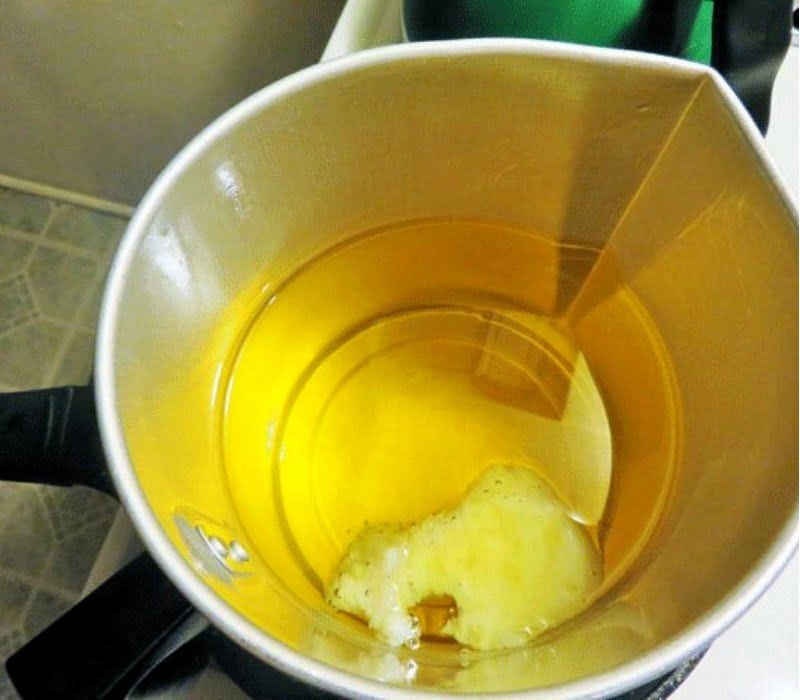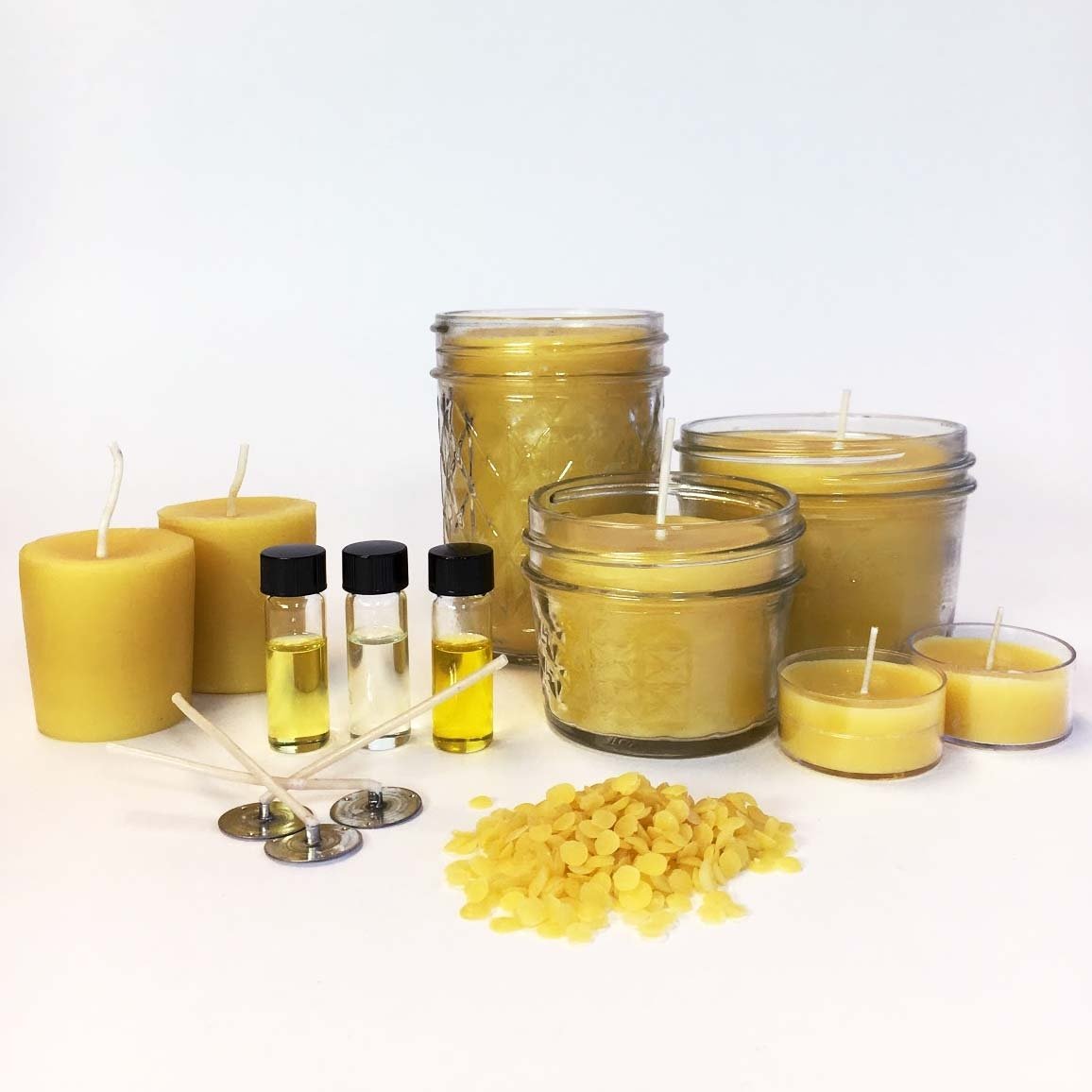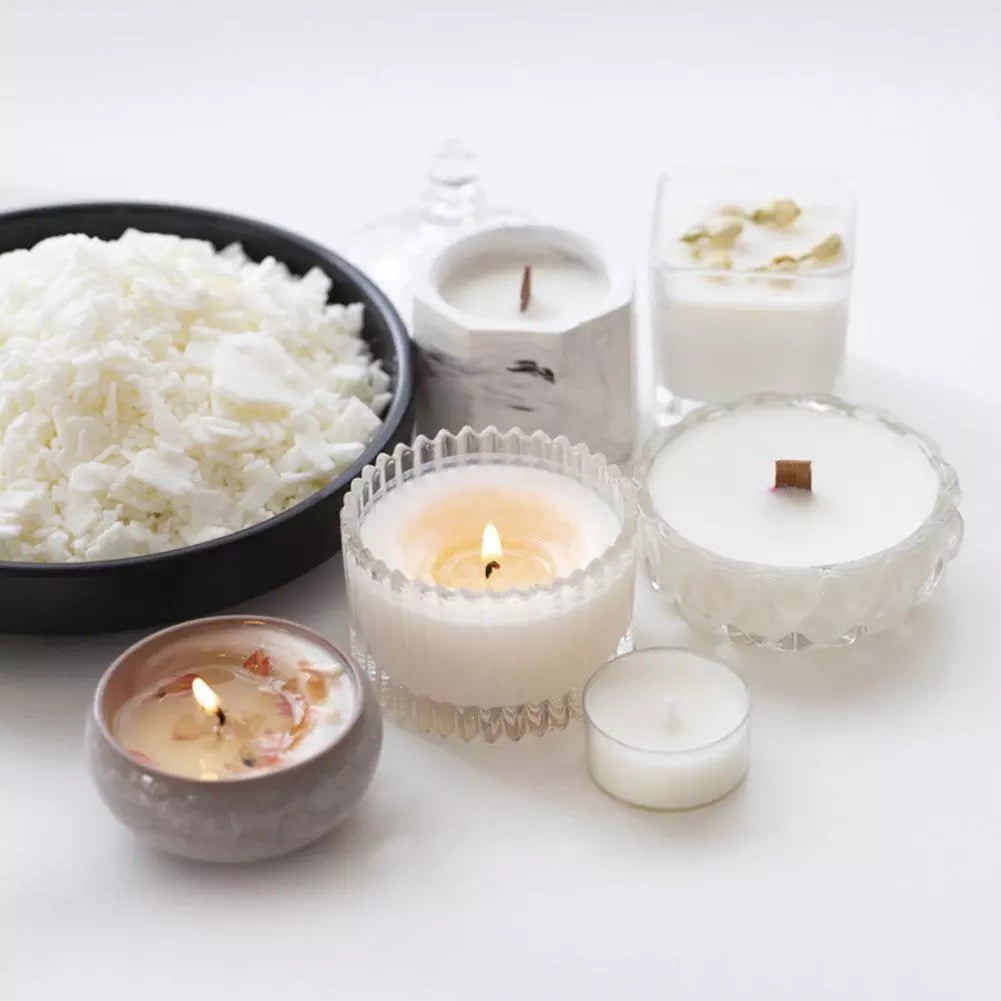Soy candles have gained tremendous popularity in recent years, thanks to their natural composition and clean burn. These candles, made from soybean oil, are not only eco-friendly but also offer a longer burn time compared to traditional paraffin wax candles. Alongside the rise of soy candles, a growing trend has emerged – the use of essential oils in candle making.
Essential oils have become an integral part of the soy candle making process due to their numerous benefits. Unlike fragrance oils that are synthetic and often contain harmful chemicals, essential oils are extracted directly from plants and offer a natural aroma with therapeutic properties. This makes them a preferred choice for those seeking to create a healthier environment through the art of candle making.
When it comes to choosing the right essential oils for soy candle making, there are several factors to consider. The scent profile, intensity, and compatibility with soy wax are all important considerations that can greatly influence the final product. In addition, one must also take into account any potential allergic reactions or sensitivities that certain essential oils may cause.
In this comprehensive guide on essential oils for soy candle making, we will explore everything you need to know about incorporating these aromatic wonders into your creations. From understanding the difference between essential oils and fragrance oils to learning how to blend them for unique signature scents, we will provide you with the knowledge and tips necessary to elevate your soy candle making experience. So grab your favorite essential oil and let’s dive into this aromatic journey together.
Understanding Essential Oils
Essential oils are natural aromatic compounds that are derived from various parts of plants, such as flowers, leaves, stems, and roots. These oils are highly concentrated and contain the distinctive fragrance and properties of the plant from which they are extracted.
In contrast, fragrance oils are synthetic substances that are created in a laboratory to mimic specific scents. While both essential oils and fragrance oils can be used to add scent to soy candles, there are some key differences between them.
One major difference between essential oils and fragrance oils is their composition. Essential oils are made up of a combination of volatile organic compounds that occur naturally in plants. These compounds give each essential oil its unique aroma, as well as potential therapeutic properties. On the other hand, fragrance oils consist primarily of synthetic chemicals designed to replicate a specific smell. They do not offer the same therapeutic benefits as essential oils.
Another distinction is the source of these oils. Essential oils are obtained through methods like steam distillation or cold-press extraction from various parts of plants. This makes them more expensive due to the amount of plant material needed for production. Fragrance oils, however, can be mass-produced at a lower cost since they are created synthetically.
When it comes to soy candle making, both essential oils and fragrance oils can be used to add scent to the candles. However, many prefer using essential oils due to their natural origins and potential health benefits associated with aromatherapy. The choice ultimately depends on personal preference and desired effects. It’s important to note that not all fragrances can be replicated with essential oils, so fragrance oils may be necessary for certain scents.
Understanding the differences between essential oils and fragrance oils allows soy candle makers to make informed choices when selecting scents for their creations. While both options have their merits, many individuals choose essential oils for their natural origins and potential therapeutic properties. By utilizing these versatile aromatic compounds in soy candle making, crafters can create unique, fragrant creations that elevate their candle-making experience.
| Essential Oils | Fragrance Oils |
|---|---|
| Derived from plants through natural extraction methods. | Synthetic substances created in a laboratory. |
| Consist of volatile organic compounds found naturally in plants. | Primarily composed of synthetic chemicals designed to replicate scents. |
| Potential therapeutic benefits due to the natural compounds present. | No therapeutic benefits beyond fragrance. |
| Made using plant material, making them more expensive. | Made synthetically, resulting in lower production costs. |
Choosing the Right Essential Oils for Soy Candle Making
When it comes to making soy candles, selecting the right essential oils is crucial for achieving the perfect scent and quality. With a wide variety of options available, it can be overwhelming to choose the best ones for your candles. However, by considering a few key factors, you can ensure that you select the essential oils that will enhance your soy candles and provide an enjoyable experience for anyone who burns them.
1. Scent Notes: One important factor to consider when choosing essential oils for soy candle making is their scent notes. Essential oils are commonly classified into three categories based on their scents: top notes, middle notes, and base notes. Top notes are lighter and typically evaporate first, providing the initial impression of your candle’s scent.
Middle notes have a balancing effect and provide body to the overall fragrance. Base notes are heavier and linger longer, forming the foundation of your candle’s scent. When combining essential oils in your soy candles, it is crucial to choose complementary scents from each note category for a well-rounded fragrance.
2. Quality: The quality of essential oils greatly impacts both their aroma and therapeutic benefits. Look for pure, high-quality essential oils that are derived from natural sources through methods such as steam distillation or cold-press extraction.
Avoid synthetic fragrances or diluted versions that may result in weaker scents or even harmful substances when burned in candles. Consider sourcing your essential oils from reputable suppliers who provide detailed information about their sourcing methods and offer third-party testing results.
3. Compatibility with Soy Wax: Not all essential oils are suitable for use in soy candles due to their chemical composition or volatility. Some essential oils may cause discoloration or affect the burning performance of soy wax if used in high concentrations.
It is important to test different essential oil blends with your chosen soy wax before committing to a larger batch production. Conducting small test batches will help you determine the optimal concentration of essential oils that will provide a pleasant fragrance without any negative effects on your soy candles.
| Factors to Consider | Description |
|---|---|
| Scent Notes | Consider the classification of essential oil scents into top notes, middle notes, and base notes to create a well-rounded fragrance. |
| Quality | Select pure, high-quality essential oils derived from natural sources through methods like steam distillation or cold-press extraction. |
| Compatibility with Soy Wax | Test different essential oil blends to ensure they do not cause discoloration or affect the burning performance of soy wax. |
Top Essential Oils for Soy Candle Making
Lavender Essential Oil
Lavender essential oil is a popular choice for soy candle making due to its soothing and calming properties. It has a sweet floral scent that can help promote relaxation and reduce stress. Additionally, lavender essential oil is known for its ability to aid in sleep and alleviate anxiety, making it a perfect choice for creating candles that can enhance your bedtime routine or create a calming atmosphere in your living space.
Eucalyptus Essential Oil
Eucalyptus essential oil is another great option for soy candle making. Its invigorating and refreshing scent adds a clean and uplifting aroma to any room. Eucalyptus is also known for its respiratory benefits, as it can help clear congestion and improve breathing. Adding eucalyptus essential oil to your soy candles can create an energizing ambiance and promote overall well-being.
Citrus Essential Oils
Citrus essential oils such as lemon, orange, grapefruit, and bergamot are excellent choices for adding a bright and refreshing scent to your soy candles. These oils have uplifting properties that can help boost mood and increase focus.
They are especially effective when used during daytime hours or in spaces where you want to create an invigorating environment. When using citrus essential oils in soy candle making, it is important to consider their potential phototoxicity, which means they can cause skin sensitivity when exposed to sunlight.
Vanilla Essential Oil
Vanilla essential oil has a warm, sweet, and comforting aroma that adds a touch of coziness to any space. It pairs well with many other scents, making it versatile for creating unique blends. The rich scent of vanilla stimulates feelings of relaxation and comfort, making it an ideal choice for creating candles that promote relaxation or set the mood for a cozy evening.
Peppermint Essential Oil
Peppermint essential oil is known for its refreshing and invigorating scent. It has a cooling effect that can help relieve headaches and improve focus. Adding peppermint essential oil to your soy candles can create a stimulating environment, especially in areas where you want to increase alertness and productivity, such as home offices or study spaces.
When choosing essential oils for soy candle making, it is important to consider personal preferences and the desired ambiance you want to create. Experimenting with different combinations of essential oils can lead to unique scents that reflect your individual style and enhance the overall experience of burning soy candles in your space.
The Benefits of Using Essential Oils in Soy Candle Making
Aromatherapy for a Relaxing Atmosphere
One of the main benefits of using essential oils in soy candle making is the ability to create a relaxing and soothing atmosphere through aromatherapy. Essential oils have been used for centuries as natural remedies for various ailments and to promote well-being. When these oils are combined with the warm glow and gentle fragrance of a soy candle, they can help create a calming environment that can reduce feelings of stress and anxiety.
Different essential oils offer different aromatherapeutic properties. For example, lavender essential oil is known for its calming effects and can be used to promote relaxation and sleep. Eucalyptus essential oil, on the other hand, has invigorating properties that can help clear the mind and uplift mood. By choosing the right combinations of essential oils, you can customize your soy candles to create specific moods or environments based on your preferences or needs.
Natural Air Freshening
Another benefit of using essential oils in soy candle making is their ability to naturally freshen the air in your home. Unlike commercial air fresheners, which often contain synthetic fragrances that can be harmful to health, soy candles infused with pure essential oils provide a more natural option.
When you burn an essential oil-infused soy candle, it releases microscopic particles of the oil into the air. These particles can help neutralize odors and replace them with pleasant scents derived from nature. This not only eliminates the need for chemical-laden air fresheners but also offers a safer alternative for those with sensitivities or allergies.
Therapeutic Benefits
In addition to creating a relaxing atmosphere and freshening the air, using essential oils in soy candle-making can also provide therapeutic benefits. Many essential oils have been studied for their potential healing properties, such as anti-inflammatory effects or their ability to boost mood and improve cognitive function.
For example, citrus essential oils like lemon or bergamot are known for their uplifting and energizing properties. They can help improve focus and concentration, making them a great choice for home offices or study areas. On the other hand, chamomile essential oil has calming properties that can help reduce anxiety and promote better sleep.
The therapeutic benefits of essential oils combined with the warm glow and beautiful scents of soy candles can create a truly transformative experience. Whether you’re looking to relax and unwind, boost your mood, or enhance productivity, incorporating essential oils into your soy candle-making process can elevate the overall experience.
Tips and Tricks for Incorporating Essential Oils into Your Soy Candle Making Process
Incorporating essential oils into your soy candle making process can add a delightful fragrance and enhance the therapeutic benefits of your candles. Here are some helpful tips and tricks to ensure that you achieve the best results:
- Determine the desired scent strength: Essential oils vary in their scent strength, so it’s important to consider how strong or subtle you want the fragrance of your candles to be. A general rule of thumb is to use about 1 ounce of essential oil per pound of soy wax for a moderate scent. However, you can adjust this ratio based on personal preference.
- Testing is key: Before making a large batch of candles, it’s advisable to conduct small test batches to determine the ideal amount of essential oil for each scent blend. This way, you can fine-tune the ratios and avoid wasting precious materials.
- Dilute certain essential oils: Some essential oils like cinnamon, clove, and lemongrass are potent and may cause skin irritation if used in their concentrated form. It is recommended to dilute these oils in a carrier oil (such as jojoba or almond oil) before adding them to your candle mixture.
- Time it right: Adding essential oils too early in the candle making process can result in fragrance loss due to evaporation caused by high heat. To preserve the aroma, it’s best to mix the essential oils into the melted soy wax just before pouring it into the containers.
- Stir thoroughly: When incorporating essential oils into your melted soy wax, make sure to stir well using a clean stirring utensil or spoon. This ensures that the fragrance is evenly distributed throughout the candle for a consistent scent experience.
- Consider complementary scents: To create more complex and unique scents, experiment with blending different essential oils together. Keep in mind that certain scents may not harmonize well with others, so research and test various combinations beforehand.
Remember that proper handling and storage of essential oils is crucial to maintain their quality and potency. Keep them in dark, glass bottles away from direct sunlight or heat, and store them in a cool, dry place. By following these tips and tricks, you can successfully incorporate essential oils into your soy candle making process and create beautifully fragrant candles that provide both relaxation and therapeutic benefits.
Creating Signature Scents
When it comes to soy candle making, one of the most exciting aspects is the ability to create unique and personalized scents. By blending different essential oils, you can craft a signature scent that is truly your own. However, blending essential oils requires careful consideration and experimentation. In this section, we will explore how you can blend essential oils to create unique and captivating fragrances for your soy candles.
Before you start blending essential oils, it is important to understand the individual notes and properties of each oil. Some essential oils have a long-lasting aroma, while others are more subtle. Additionally, certain oils may have calming or invigorating effects on your senses. By familiarizing yourself with these properties, you can begin to think about which oils might work well together in a blend.
To begin creating your signature scent, start by selecting a few essential oils that you are drawn to or resonate with the fragrance profile you have in mind. Consider using a combination of top notes (which provide the initial impression), middle notes (which add depth and balance), and base notes (which give the scent its lasting power).
For example, you may choose bergamot as a top note for its citrusy aroma, lavender as a middle note for its soothing properties, and vanilla as a base note for its warm and comforting scent.
Once you have selected your essential oils, it’s time to experiment with different combinations. Start by mixing small amounts of each oil together in a separate container or blend bottle. Keep track of the ratios used so that if you stumble upon a winning blend, you can recreate it later on. Take note of how each oil interacts with one another – some blends may be harmonious while others may clash.
A helpful tip when blending essential oils is to let the blend sit for at least 24 hours before evaluating the scent. This allows the oils to fully mingle and develop, giving you a better understanding of how the blend will smell in your soy candles. Remember that with blending, it’s all about trial and error. Don’t be afraid to get creative and experiment with different combinations until you find the perfect signature scent for your soy candles.
Safety Precautions when Using Essential Oils for Soy Candle Making
Using essential oils in soy candle making can enhance the aroma and provide various therapeutic benefits. However, it is crucial to prioritize safety when working with these powerful oils. Here are some important dos and don’ts to keep in mind when using essential oils for soy candle making.
DO: Choose high-quality essential oils that are suitable for candle making. Look for oils that are 100% pure, undiluted, and free from synthetic additives. Ensure that you purchase your essential oils from reputable suppliers who provide information about the sourcing and production methods of their products.
DON’T: Overload your candles with essential oils. While it may be tempting to add a generous amount of oil to intensify the scent, this can lead to an unsafe burning experience. Essential oils have different flashpoints, which refers to the temperature at which they can ignite. Adding too much oil increases the risk of a candle flare-up or even causing a fire hazard.
DO: Conduct a patch test before using any new essential oil in candle making. Apply a small amount of diluted oil onto your skin and wait for 24 hours to check for any adverse reactions. This step is especially important if you have sensitive skin or respiratory conditions like asthma.
DON’T: Use essential oils directly on the skin without proper dilution. Essential oils are highly concentrated and can cause severe skin irritations, burns, or allergies if not properly diluted with a carrier oil or other suitable mediums.
DO: Store your essential oils properly in dark glass bottles away from direct sunlight, heat sources, and humidity. This preserves their quality and extends their shelf life.
DON’T: Ingest or consume essential oils unless under the guidance of a certified aromatherapist or healthcare professional. Essential oils are not intended for internal use and can be toxic if ingested in large quantities.
By following these safety precautions, you can enjoy the benefits of using essential oils in soy candle making while ensuring a safe environment for yourself and others. Remember to always read the guidelines and instructions provided by your essential oil supplier to ensure the proper usage and storage of these oils.
Frequently Asked Questions about Essential Oils for Soy Candle Making
As the popularity of soy candles and essential oils continue to grow, it is natural for people to have questions regarding the use of essential oils in soy candle making. In this section, we will provide answers to some frequently asked questions to help you understand and make informed decisions when incorporating essential oils into your soy candle making process.
- Can I use any essential oil in soy candle making?
- How much essential oil should I add to my soy candles?
- Can I mix different essential oils together?
While essential oils offer a wide range of scents, not all of them are suitable for use in candle making. It is important to choose high-quality essential oils that are specifically formulated for candle making. Some essential oils may have a lower flashpoint, which means they can be a fire hazard if used in candles.
Additionally, certain essential oils may not blend well with the natural scent of soy wax or may cause discoloration. It is best to research and select essential oils that are safe and compatible with soy candles.
The amount of essential oil you should add will depend on various factors such as the size of your candle, personal preference for scent intensity, and the specific fragrance oil you are using. As a general guideline, it is recommended to add approximately 1 ounce (30 milliliters) of fragrance oil per pound (453 grams) of soy wax for a strong scent throw.
However, it is always advisable to refer to the specific instructions provided by the manufacturer of your chosen fragrance oil or consult a reliable reference guide.
Yes, blending different essential oils together can create unique and delightful scents for your soy candles. Experimenting with different combinations allows you to create signature scents that reflect your personal style or cater to specific preferences. However, it’s important to exercise caution when blending essential oils as some combinations may not be compatible and can produce unpleasant or overpowering scents. It is best to start with small quantities and test the blend before making larger batches.
By addressing these frequently asked questions, you now have a better understanding of essential oils for soy candle making. Remember to research, seek guidance from reputable sources, and allow yourself room for experimentation as you explore the vast world of essential oils in this creative process.
Conclusion
In conclusion, essential oils have become an invaluable addition to the world of soy candle making. Their unique properties and aromatic benefits offer a truly elevated experience for both the candle maker and consumer. By understanding what essential oils are and how they differ from fragrance oils, you can make informed choices when selecting the right oils for your candles.
When choosing essential oils for soy candle making, it is important to consider factors such as scent profiles, compatibility with soy wax, and desired therapeutic effects. Referencing a comprehensive guide of top essential oils can help you navigate through the vast array of options available, ensuring that you create candles that not only smell amazing but also provide additional benefits beyond simple fragrance.
One of the major advantages of using essential oils in soy candle making is the ability to incorporate aromatherapy into your candles. The therapeutic properties of these oils can enhance relaxation, promote focus and clarity, or even uplift mood depending on the chosen scents. Additionally, essential oils allow you to create signature scents by blending different oils together, giving your candles a unique and personal touch.
Incorporating essential oils into your soy candle making process requires some tips and tricks to get optimal results. Proper measurements, temperature control, and experimenting with different blending ratios are all part of mastering the art of using essential oils in candles. It is also crucial to follow safety precautions when handling these concentrated substances to ensure a safe working environment.
Overall, by harnessing the power of essential oils in your soy candle making endeavors, you can take your creations to new heights. The use of these natural extracts not only enhances the olfactory experience but also brings about added therapeutic benefits. So don’t be afraid to experiment with different blends and fragrances – let the essence of essential oils elevate your soy candles into truly extraordinary works of art.

Welcome to my candle making blog! In this blog, I will be sharing my tips and tricks for making candles. I will also be sharing some of my favorite recipes.





